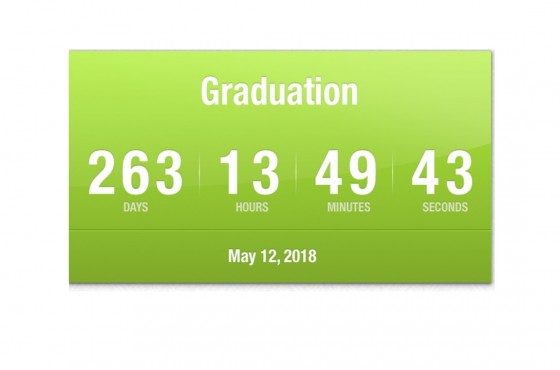Your Internship Has Ended There’s One More Thing to Do
The end of summer brings an end to most internship programs. You’ve worked hard all summer to make a positive and lasting impression on your supervisor and work colleagues. You wrapped up your internship appropriately leaving no loose ends on projects, sending thank you notes and connecting with people on LinkedIn. Before heading back to college and getting caught up with friends and starting classes, there’s one more thing to do to position yourself to land the post-graduation job—capture your experience. Here’s a checklist to wrap up your internship.
List projects and accomplishments
First—and most importantly—your internship helped you recognize your skills through the work/projects assigned and the results achieved. Here are some tips to help you identify your skills, accomplishments and achievements.
- Start with the facts: look at your actual achievements/accomplishments
- Write down the words your boss, co-workers, colleagues, peers use to describe what you have done (refer to performance reviews)
- To get to your skills identify how you used them to achieve your results and accomplishments
And, here’s the formula to use; based on the behavioral interviewing format used by most employers. Think of this as writing mini-case studies.
What was the problem you were asked to solve ▪ What did you do to address the problem ▪ What were the results from the work you did
What the Problem/Challenge/Situation: Describe the problem you were asked to solve, or the situation you were in or the challenge you found yourself in such as a conflict with a manager.
Action: Describe the steps/process/your contribution to address the problem, situation or challenge—here’s what I did.
Results: Describe the outcome of your actions and where possible quantify e.g. increased page “Likes” by 200% or research contributed to 10% decrease in accounting errors.
Update your resumé
Your objective is to craft a resumé that is rich in personality and accomplishments. One that communicates your value, distinguishes you and looks pleasing to the human eye. Update your resumé to include the accomplishments you identified paying attention to keywords/key phrases and the appropriate action words. For more on resumé writing, click here.
Before campus recruiting and career fairs begin at your school make sure your updated resumé is in the career services database. Some campus recruiters will go through the database to identify students they want to meet.
Reflect on your experience
This is also the time for you to reflect on your experience after all you pursued this internship to get a realistic view of the career field. Start with these questions.
Skills: What are the knowledge-based skills critical to success in this career? What are the interpersonal skills needed to achieve success?
Career Path: What’s the best ways for me to get started in this career? List the ways people you met progressed in their careers. What is my path?
Work and life balance: Describe the work/life balance in this career and industry and company. What will I need to sacrifice to be successful in this career field?
Meaningful/purposeful work: In what ways was the work challenging and stimulating? I was proud of the work I produced because…How does this career fits with what is important to me?
Organizational Culture: I learned the values most important to me in the work environment, these are…I learned the career or company values align with mine in the following ways…Did the pace of work allow me to do quality work/do my best work? If not, why? I liked or disliked…
My Work Style: I responded well to supervision and feedback. I received the following feedback. I worked effectively with others on team projects. In what ways? I showed the capacity to be a self‐sufficient, independent worker. Examples include…
Stay in Touch
Once your internship is over, follow up with the people you worked closely with. Whether you come across an article you think your former manager would like, you put something you learned at the office to use for a big project, or you just want to say hello, it’s okay to reach out over email or LinkedIn.
In addition, if you connected with someone at the company particularly well, reach out and ask for her advice from time to time. Often, people are more than happy to talk to you about your career goals and the industry, and building a relationship with a mentor at the company can be immensely valuable in helping you land a full-time position.
Employers have different hiring cycles. For example, investment banking and engineering interns will get job offers immediately following the internship period. Marketing and entertainment industry interns typically will not. If your career is one that doesn’t hire unless a position is open, make sure you contact the people you worked closely with no later than March to let them know you are about to grad and see what opportunities are available.
Finish your summer knowing how to direct your last year in college.



